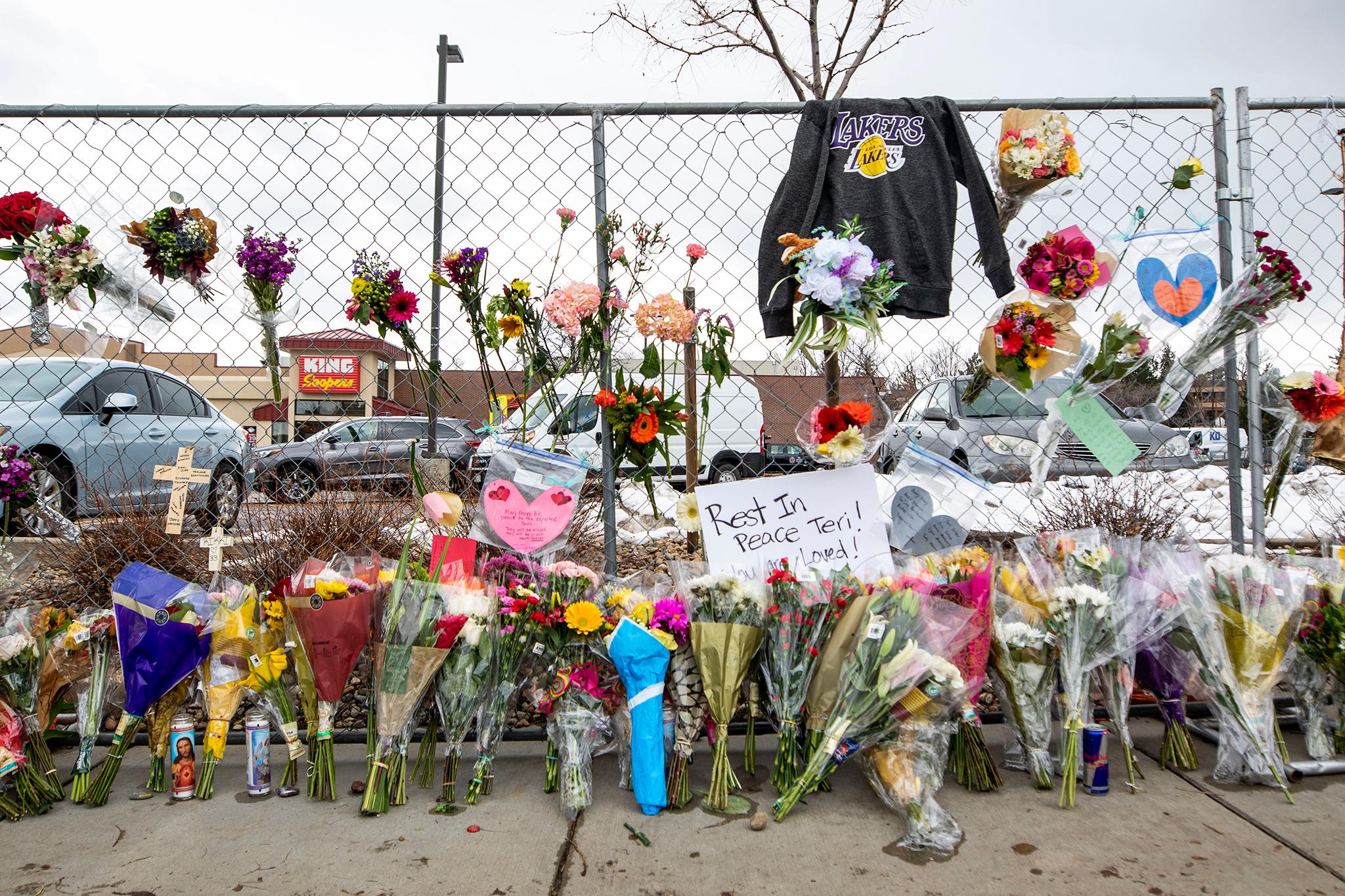
The man accused of killing 10 people at a Boulder King Soopers two years ago is now being forcibly medicated and undergoing evaluations at the state’s mental health hospital to determine whether he is feigning mental illness to avoid trial.
Court documents filed by prosecutors this week indicate that Ahmad Al Aliwi Alissa could be making mental health progress and that he is now participating in restoration classes at the Colorado Mental Health Institute at Pueblo.
Alissa surrendered to law enforcement officers inside the King Soopers grocery store on March 22, 2021, after prosecutors say he shot and killed 10 people, including a police officer, at the store. Later that year, several doctors declared him incompetent to proceed to trial after he spent time in jail after the shootings.
He was transferred to the secure facility in southern Colorado in December 2021, and throughout many court hearings last year and this year, Boulder Judge Ingrid Bakke has said he is expected to be restored to competency.
But most of those hearings were devoid of specific information about how he was doing or any treatment he was receiving.
Regular reports about his progress required by the judge are sealed. In a February filing, public defenders said he was suffering the symptoms of schizophrenia and that while he was jailed shortly after the shooting his illness was exacerbated and he was approaching “catatonia.”
In the 17 months since he’s been hospitalized, though, Boulder District Attorney Michael Dougherty has raised concerns of malingering, which means the defendant may be faking his mental illness or choosing not to participate in the competency restoration offered to him in Pueblo.
Dougherty has also pointed out that the many victims in this case, family members of loved ones who were shot and killed, have been in limbo, waiting to see someone held accountable in court.
“The 10 people who lost their lives in King Soopers that day, including my husband, they absolutely had the right to live out the rest of their lives with their loved ones,” said Ellen Mahoney, whose husband Kevin Mahoney was shot and killed in the parking lot. “And those rights were taken away that day in a sudden and brutal way and that’s not right. We talk a lot about rights and that’s important to me.”
State officials have also started personality and malingering tests
Prosecutors sought out a neuropsychologist who would be able to perform personality and other types of testing on Alissa that they say is standard practice inside the mental health hospital — but wasn’t happening with the defendant.
Bakke ruled no one was going to make decisions about his treatment except the doctors inside, but she did grant a competency restoration hearing for later this month that would determine whether he was competent enough to assist in his own defense for a future trial.
In filings this week ahead of that hearing, though, prosecutors say state officials started personality and malingering tests in early April. Doctors also reported to prosecutors they began forcibly medicating Alissa with antipsychotic drugs in March, via injection, and that blood tests confirmed the medication was reaching his system.
In order for a state doctor to forcibly medicate someone in custody, state law requires physicians to go before a judge wherever the defendant is located at the time — in this case, Pueblo — and get permission. That was granted by a court order on March 23, 2023, according to filings.
After receiving regular medication, documents say, the “defendant started individual restoration treatment in March and has attended every session offered,” according to court documents.
“A review of the records pertaining to the treatment sessions indicates a level of engagement by the defendant previously unseen,” prosecutors said.
Competency restoration doesn’t have anything to do with whether the defendant was mentally ill at the time an alleged crime occurred, and it isn’t really long-term mental health treatment. It’s only to get defendants to the point where they can assist in their own criminal defense. The competency courses explain the roles of lawyers and judges and what it means to plead guilty and not guilty.
Meanwhile, Bakke has delayed the competency restoration hearing to August at the request of lawyers in the case. At that hearing, she will make a decision on whether he is competent to stand trial.
Colorado has struggled with competency services
For more than a decade, Colorado has struggled with a backlog of people in the criminal justice system awaiting competency restoration to stand trial.
After a lawsuit, the state is under a consent decree to move people from jails to in-patient restoration in a timely fashion but has fallen dramatically behind in post-pandemic times.
At the Colorado Mental Health Institute in Pueblo, roughly one-third of the 422 beds are being used for people undergoing competency restoration so they can stand trial.
There are currently 450 people in jails who have been deemed incompetent to proceed awaiting a bed at a state hospital — either in Pueblo or at Fort Logan in south Denver.
The state continues to pay $12 million in fines every year for these delays.








